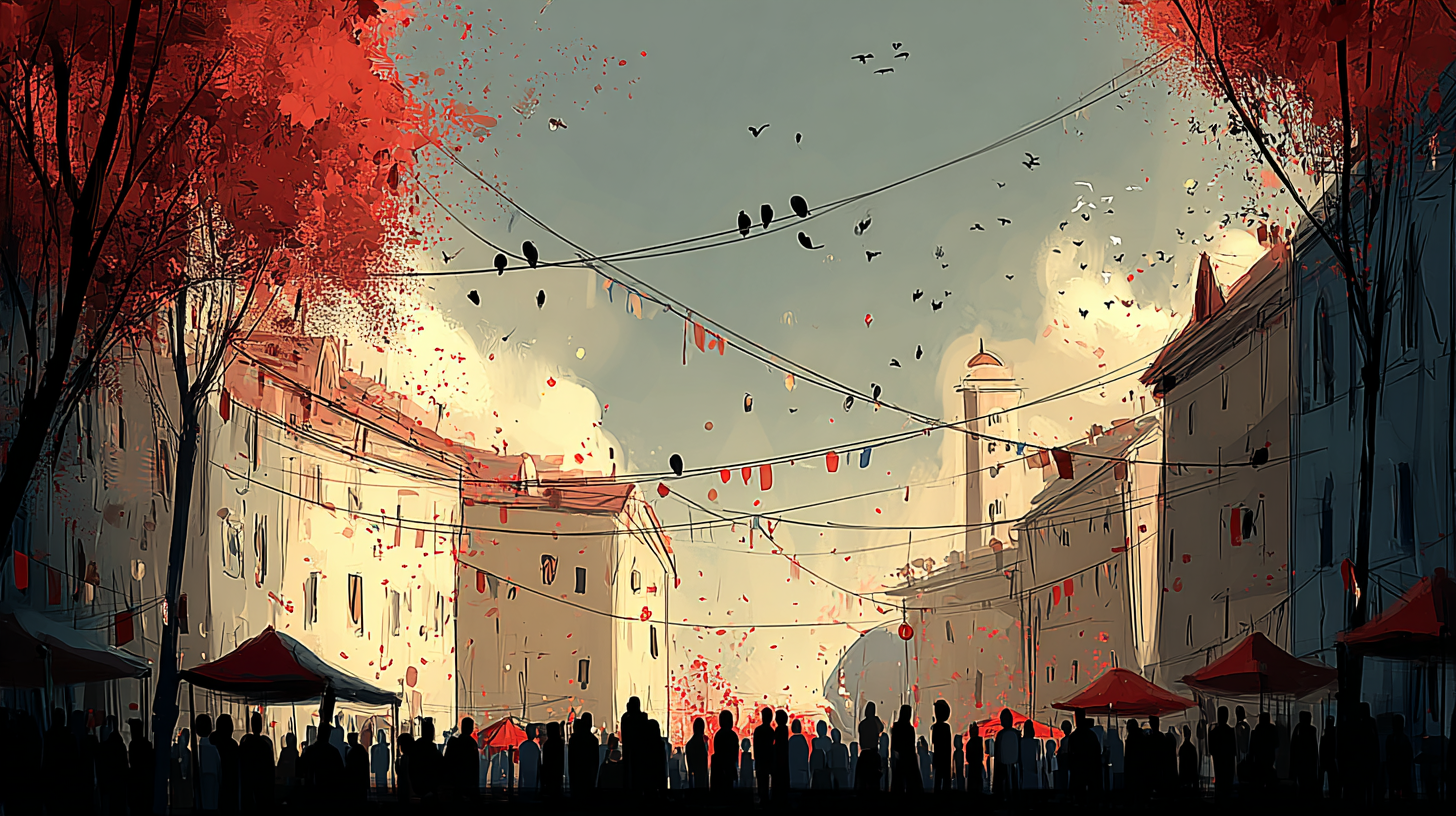A town is a place where many people live and work together.
人が集まって住んでいる町や都市のこと。
以下は英単語 “town” に関するストーリー型学習コンテンツです。まずは大枠の意味を理解して最後の文章で確認しましょう。
主な意味(main meaning)
| 品詞 | 発音記号 (IPA) | 意味 | 英語例文 |
|---|---|---|---|
| 名詞 (noun) | /taʊn/ | 市や町、人口がまとまって住む場所 | I live in a small town near the sea. |
| 名詞 (noun) | /taʊn/ | 都市の中心部(ダウンタウン) | We went to town to buy some clothes. |
語源(etymology)
古英語 tūn(囲まれた場所、村)が起源
元のイメージ:囲まれて守られている人の集まり → 村 → 町
類義語(synonyms)
| 類義語 | 英語例文 |
|---|---|
| city | Tokyo is a big city with many skyscrapers. |
| village | My grandparents live in a quiet village. |
| municipality | The municipality is planning a new park. |
| borough | This borough has a strong sense of community. |
反義語(antonyms)
| 反義語 | 英語例文 |
|---|---|
| countryside | I prefer living in the countryside to living in a town. |
| rural area | Many people move from rural areas to towns for jobs. |
コロケーション(collocations)
| コロケーション | 英語例文 |
|---|---|
| small town | She grew up in a small town in Canada. |
| town center | The town center is full of shops and cafes. |
| town hall | The mayor gave a speech at the town hall. |
| go to town | They went to town to celebrate their victory. |
| town square | The festival will be held in the town square. |
2項表現(binomials)
| 2項表現 | 英語例文 |
|---|---|
| town and country | He enjoys both town and country life. |
| in and out of town | She travels in and out of town for work every week. |
英語ストーリー(english story)
The Town Festival
Sophie had lived in a small town all her life. It was not as big as a city, but it was larger than a village. The town center had a few shops, a library, and a town hall. Every year, the mayor organized a summer festival in the town square, and everyone looked forward to it.
This year, Sophie volunteered to help. The municipality asked her to prepare decorations, and she worked with her friends to make colorful banners. On the day of the festival, people from both town and country came to enjoy the music, food, and games.
Her friend Jack, who lived in the countryside, said, “I usually like quiet places, but your town is so lively today!” Sophie smiled and replied, “Yes, everyone is here, even people who are usually in and out of town.”
When the sun went down, lights filled the town square. People danced, laughed, and ate together. Sophie realized that her town might be small, but it was full of warmth and community spirit.
和訳
町の祭り
ソフィーは一生この**小さな町(small town)で暮らしてきた。それは都市(city)**ほど大きくはないが、**村(village)**よりは大きかった。**町の中心部(town center)にはいくつかの店、図書館、そして町役場(town hall)があった。毎年、町長は夏祭りを町の広場(town square)**で開催し、みんなが楽しみにしていた。
今年、ソフィーは手伝いを申し出た。**自治体(municipality)**から飾りつけの準備を頼まれ、彼女は友達と一緒に色鮮やかな旗を作った。祭りの日には、**町と田舎(town and country)**の両方から人々が集まり、音楽、食べ物、ゲームを楽しんだ。
田舎(countryside)に住む友人のジャックが言った。「普段は静かな場所が好きだけど、今日は君の町がとてもにぎやかだね!」ソフィーは笑って答えた。「そうよ、いつもは**町に出たり戻ったり(in and out of town)**している人たちも、今日はみんな来ているわ。」
日が沈むと、光が**町の広場(town square)**を照らした。人々は踊り、笑い、共に食事を楽しんだ。ソフィーは、自分の町は小さいかもしれないが、温かさと地域の絆にあふれていることを改めて感じた。
Q&A
Q: 「town」と「city」の違いは何ですか?
A: 「city」は人口が多く、ビルやインフラが発達した大都市を指します。一方「town」はそれより規模が小さく、比較的静かで地域のつながりが強い場合が多いです。
Q: 「town」と「village」の違いは何ですか?
A: 「village」は「村」で、人口が少なく、商店や公共施設がほとんどない小規模な集落を指します。「town」はそれより大きく、学校や店、役場などがあることが一般的です。
Q: 「town」と「municipality」の違いは何ですか?
A: 「municipality」は自治体や行政組織を指し、地理的な場所ではなく行政区分や運営組織を表す言葉です。「town」は場所そのものを指します。
Q: 「town」と「borough」の違いは何ですか?
A: 「borough」は主にイギリスやアメリカで使われ、都市や地域の行政区画を指します。「town」は一般的な「町」の意味で、行政区分というより生活の場としての意味が強いです。
Q: 「small town」と「town」の違いは何ですか?
A: 「small town」は規模の小ささを強調します。「town」単独だと規模については特に言及していません。
Q: 「town center」と「town」の違いは何ですか?
A: 「town center」は町の中心部、商業や公共施設が集中している場所を指します。「town」は町全体を指します。
Q: 「town hall」と「town」の違いは何ですか?
A: 「town hall」は町の役場や市役所の建物を指します。「town」は町全体を意味します。
Q: 「town square」と「town」の違いは何ですか?
A: 「town square」は町の中心部にある広場を指します。「town」は町全体です。
Q: 「go to town」と「go to the town」の違いは何ですか?
A: 「go to town」は比喩的に「全力でやる」「派手にやる」という意味で使われることがあります。「go to the town」は文字通り「その町へ行く」という意味です。
Q: 「town and country」と「town」の違いは何ですか?
A: 「town and country」は町と田舎の両方を並べて対比・比較するときに使います。「town」は単独で町を指します。
Q: 「in and out of town」と「in town」の違いは何ですか?
A: 「in and out of town」は町に頻繁に行ったり戻ったりすることを意味します。「in town」は町にいる状態を指します。



コメント